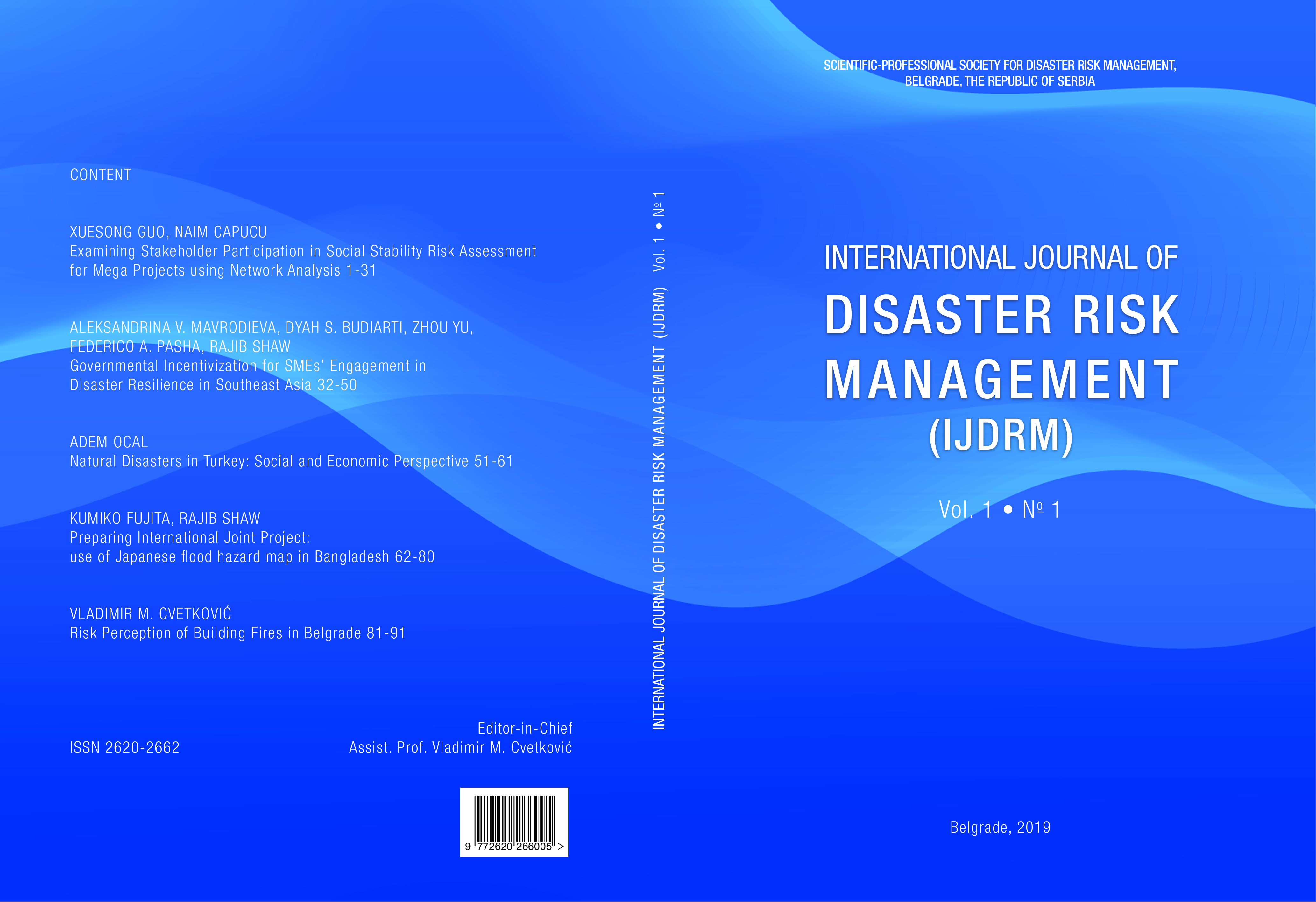Governmental Incentivization for SMEs’ Engagement in Disaster Resilience in Southeast Asia
Governmental Incentivization for SMEs’ Engagement in Disaster Resilience in Southeast Asia
Author(s): Aleksandrina V. Mavrodieva, Dyah S. Budiarti, Zhou Yu, Federico A. Pasha, Rajib ShawSubject(s): Energy and Environmental Studies
Published by: Naučno-stručno društvo za upravljanje rizicima u vanrednim situacijama
Keywords: Small and Medium Enterprises (SME); Private Business; Disaster Response; Disaster Preparedness and Resilience; Government Incentives; Southeast Asia; Business Continuity
Summary/Abstract: The resilience of Small and Medium Enterprises (SMEs) is regarded as a precondition of sustainable development both at the local and the national levels, as they are the providers of the main portion of jobs in the market, contributing an average between 57 to 97% of national employment in the ASEAN countries. At the same time, SMEs are the most vulnerable businesses as a result of financial, technological, and administrative limitations, where the majority of SMEs lack even basic knowledge on disaster preparedness and response techniques. The current study argues that governments have a particularly important role in mobilizing SMEs disaster resilience through developing adequate policies and legislation, and through providing the necessary infrastructure and investment climate for SMEs to thrive, focusing particularly on Indonesia, the Philippines and Thailand. The research tries to present the current level of SME involvement in each of the three countries and to identify relevant gaps and opportunities. This paper does not include an extensive list of recommendations but tries to focus on some of the basic techniques which governments can and should employ in their efforts towards economic and community resilience, arguing that a number of appropriate incentives would be beneficial in engaging SMEs as one of the vital parts of private sector. structured abstracts: 1) Introduction; 2) Methods; 3) Results; 4) Conclusions and implication.
Journal: International Journal of Disaster Risk Management
- Issue Year: 1/2019
- Issue No: 1
- Page Range: 32-50
- Page Count: 18
- Language: English

